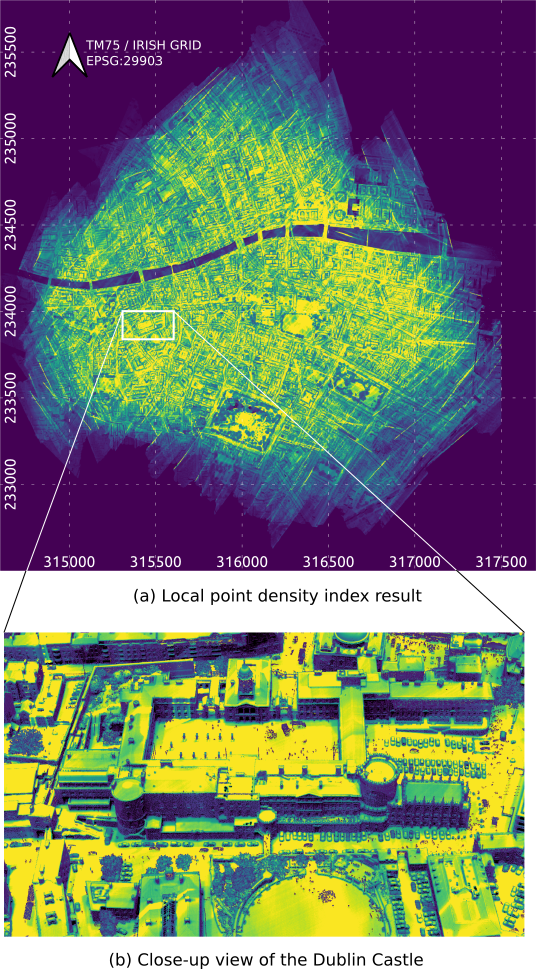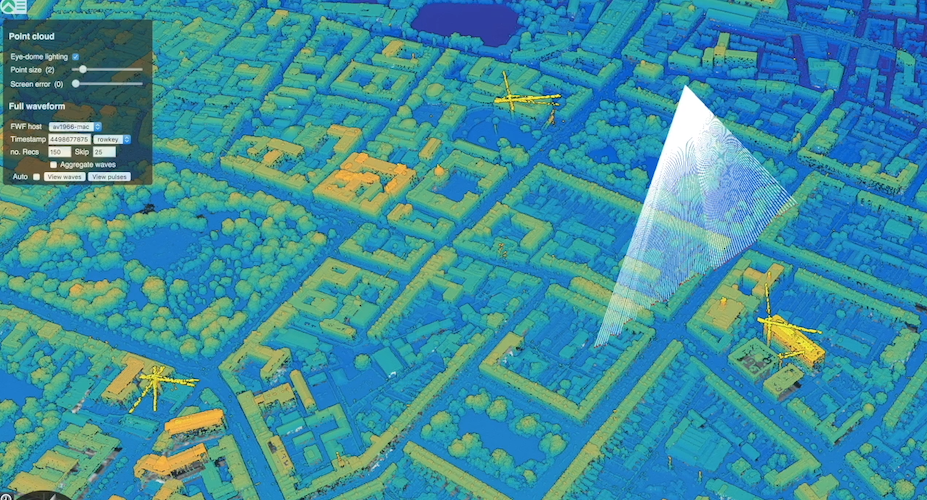Improving resilience to the threat of coastal flooding
News
- CS News 2025
- SECURENET 2025
- EoI for Postdoctoral Fellowships 2025
- “Back to the Future” Advanced AI Careers Evening
- SOLARIS Shortlisted for Best Research Project at the 2025 Education Awards
- First global carbon neutral conference in ICT for Sustainability
- ARMOR: Advancing AI-Driven Security for 6G Open RAN Networks
- AI research and education at UCD and career opportunities in Ireland
- Political Bias on X before the 2025 German Federal Election
- A new Book co-authored by UCD CS Assoc. Prof. Madhusanka Liyanage Explores the Foundations and Applications of Mobile Edge Computing
- UCD NetsLab Leads a Global Consortium to Tackle 6G Security Challenges
- First students conferred with MSc in Cybersecurity
- Second Workshop on the Responsible Use of Generative AI in Research
- First BDIC Conference on Computer Science and Electrical/Electronics Engineering
- Paul Gillen - global leader in the fight against cyber crime
- CS students awarded Naughton Foundation Scholarships
- First Workshop on the Responsible Use of Generative AI in Research
- Dr Brett Becker (1976 - 2024)
- UCD Computer Science Researchers Receive ReCLAIM Award for GenAI Project
- MSc Cybersecurity Research Project Presentations 2024
- UCD BSc Computer Science Conferring 2024
- UCD NetsLab Launches ORAN Testbed to Advance Security and Privacy in Beyond 5G and 6G Networks
- UCD CS Netslab researchers in a global collaboration to bolster Zero Touch security and privacy for 6G networks
- UCD STEM Early Career Researchers Symposium
- EoI for Postdoctoral Fellowships 2024
- CS start-up a finalist in VentureLaunch Accelerator Programme
- University College Dublin Joins ROBUST-6G Project
- Cyberwise Cyber Security Shared Learning Day
- 2nd Summit on Security and Privacy in Future Mobile Networks (SECURENET) 2024
- Message from the Head of School
- Ulysses Medal Awarded to Professor Geoffrey Hinton: The Godfather of AI
- UCD CS academics invited to organise prestigious Dagstuhl seminars
- UCD College of Science Women in Science Mentoring Awards
- PhD Poster Event 2024
- “Back to the Future” Software Engineering Evening
- Improving resilience to the threat of coastal flooding
- Alumnus In Conversation - Fergal Reid, VP of AI at Intercom (PhD 2013)
- Computer Science Summer School
- Welcome to CS News 2023
- EoI for Postdoctoral Fellowships
- EU MSCA SE RE-ROUTE Project Kicks Off to Design Futuristic Multi-Modal Transportation Platform
- PhD Poster Event
- UCD wins at AI Ireland AI Awards
- UCDCS Athena SWAN Award
- Jan Łukasiewicz
- International Men’s Day
- 1st Year BSc Halloween Networking Event
- Ada Lovelace Energy Hackathon
- 5G for digital healthcare in COVID-19
- UCD CS Faculty Elected Vice Chair of ACM SIGCSE
- CS Big Data project for strategies to combat childhood obesity recognised for its innovation potential
- Welcome to CS News 2022
- UCD CS to host the 27th ACM Innovation and Technology in Computer Science Education
- UCD Computer Science Success in SFI Frontiers to the Future
- Why study Computer Science at UCD?
- CAMEO project receives funding from the Disruptive Technology Innovation Fund
- Congratulations to the Class of 2021 - MSc Forensic Computing & Cybercrime Investigation
- Computer Science Colleagues’ success in Interdisciplinary Research Scheme
- ML Labs Annual Newsletter
- Seagate CORTX Challenge
- UCD Academic awarded the 2021 Beijing Great Wall Friendship Award
- Recent funding successes and industry collaborations
- EU H2020 SPATIAL project
- recsyslabs - privacy preserving personalisation for publishers
- Congratulations to our recent PhD graduates
- UCD In Conversation: Cybercrime causes, trends, and prevention
- CS researchers partner in three successful Disruptive Technologies Innovation Fund projects
- Welcome to CS News, the new UCD CS magazine
- Congratulations to our recent PhD and research MSc graduates
- New book showcases digital forensic research by UCD law enforcement graduates
- Training the next generation of Computer Scientists
- Industry Partnership Event to showcase new research on using machine learning
- Poems that Solve Puzzles: The History and Science of Algorithms
- A welcome to incoming first year Computer Science students
- Zoom for Thought with Prof. Muthoni Masinde
- iPROCEEDS-2: Starting of the long-distance master programme on forensic computing and cybercrime investigation
- Short Term Contract Positions Opportunities
- Most Influential Paper Award at the 28th International Requirements Engineering Conference
- From the School of Medicine in partnership with the School of Computer Science
- 2nd Workshop on Implementing Machine Ethics on 30th June
- CeADAR receives Enterprise Ireland Funding for a new Supercomputer
- Assistant Professor Brett Becker awarded Research Fellowship
- UCD CS Masters Student wins prestigious Intel Student Scholarship
- Navigating COVID19 data with a little help from a tame data scientist
- PhD Positions
- UCD Computer Science Project Nominated for Two Education Awards
- Vacancies - Lecturer/Assistant Professor in Computer Science (x2)
- Ad Astra Fellows - Applications to Computer Science
- CALL OPEN - PhD Scholarships 2020 in Machine Learning
- Commissioner of An Garda Síochána visits the School of Computer Science for Conferring
- Computing Education Group SIGCSEire to launch in UCD on December 11th
- UCD Computer Science wins over €34m in Research Grants in 2018-19
- UCDCS Best Short Paper award 13th ACM Conference on Recommender Systems (RecSys)
- CS Sparks Programme
- CS Sparks
Improving resilience to the threat of coastal flooding
UCD CS is a partner in the (opens in a new window)UrbanARK project which aims to improve the resilience and emergency preparedness of urban centres and their communities to coastal flooding. Flooding is a growing threat because of climate change and so this project is timely.
Underground spaces a priority flood risk
Within urban centres, underground spaces such as storage areas, transportation corridors, basement car parks, public facilities, retail & office and private spaces (such as residential basements) present a priority risk during flood events with respect to timely evacuation. However, often the location, geometry and volume of these underground spaces are not well known. Furthermore, these underground spaces are commonly not considered in urban flood prediction models.
Communicating risk to the public
At the same time, communicating flood risks and enhancing emergency preparedness poses further challenges. The use of these urban underground spaces is highly varied and the perception of risk differs from one user community to the next. Thus emergency planners need engaging communication tools to increase community resilience and preparedness to flooding events. One big impact outcome of the project is that the data collected is going to be made available to the public.

New technologies and more accurate models
The project harnesses new technology in the area of remote sensing, high-resolution street view imagery, distributed computing and visualisation, including the presence of underground spaces which are currently not taken into account by predictive models. With more accurate models, emergency planners can help protect people and property. The models will provide refined information on flood levels and flooding rates into the underground spaces, which in turn will be used as part of a newly developed risk communication tool comprising a low-cost virtual reality application. This tool will then be able to communicate the local flood risks to urban communities directly, providing an immersive experience of flood risk with the aim to better engage communities in emergency preparedness, thus increasing community flood resilience.
The benefits of international collaboration and shared expertise
For the UrbanARK project, UCD collaborated with New York University and Queen’s University Belfast. The project builds on the respective institutional strengths of each university, while fostering regular cross-fertilization and synergistic team building. In doing so, it interweaves the leading interdisciplinary research expertise of civil engineers, social scientists, geomaticians, and computer scientists. UCD contributed expertise in the area of spatial data management and looking at ways to help flood prediction and risk assessment for coastal urban communities. UCD’s team is led by Professor Michela Bertolotto as UCD Principal Investigator with Assoc. Prof, Nhien-An Le-Khac as co-PI.

Three cities
Three cities (Dublin, Belfast and New York) were case studies and the team was able to incorporate the expertise and stakeholders in emergency management and planning in each city to learn from each other. The interchange, interaction and co-learning was an exciting aspect of the project. Each city poses unique challenges and has its own distinctive character. In combining the three study areas, the investigations covered the range of different underground structures typically encountered in coastal urban centres, including a broad mix of urban communities.
New York University’s Dr Debra Laefer comments that “international collaboration is important because it really brings the best knowledge, the most up-to-date thinking and the most expanded vision of research in this modern context… it gives the opportunity to participate in not only cutting edge research but being able to absorb and to experience perspectives from around the world.”
Dr Ulrich Ofterdinger at Queen’s University in Belfast is leading the QUB team. In their conversations with Belfast City Council on the risks posed from climate change to the urban environment and Belfast, one of the main concerns was the coastal flood risk in the city center. Dr Ofterdinger explains how “the research findings were developed between the different teams working together but then also in close collaboration with the stakeholders in the case study areas. The data that we collected - the scans of the case study areas allowed us to produce visualizations of the neighborhood environment that can then be used to show residents and people who live and work there what a flood risk actually looks like.”
For the researchers it is an opportunity to internationalise their research and through the partnership achieve great visibility.

UrbanARK - a showcase for international collaboration
(opens in a new window)Intertrade Ireland selected UrbanARK to showcase the success of the SFI US-Ireland R&D programme which links researchers across Ireland, Northern Ireland and the USA. The programme has funded 86 projects to the tune of €141 million to address global issues that require ground breaking thinking. Watch the video at (opens in a new window)US Ireland R&D Partnership | UrbanARK Project

The Project is jointly funded by the Northern Ireland Department for the Economy (USI 137),US National Science Foundation (NSF Award 1826134) and Science Foundation Ireland (SFI 17/US/3450)
Published 29th January 2024
